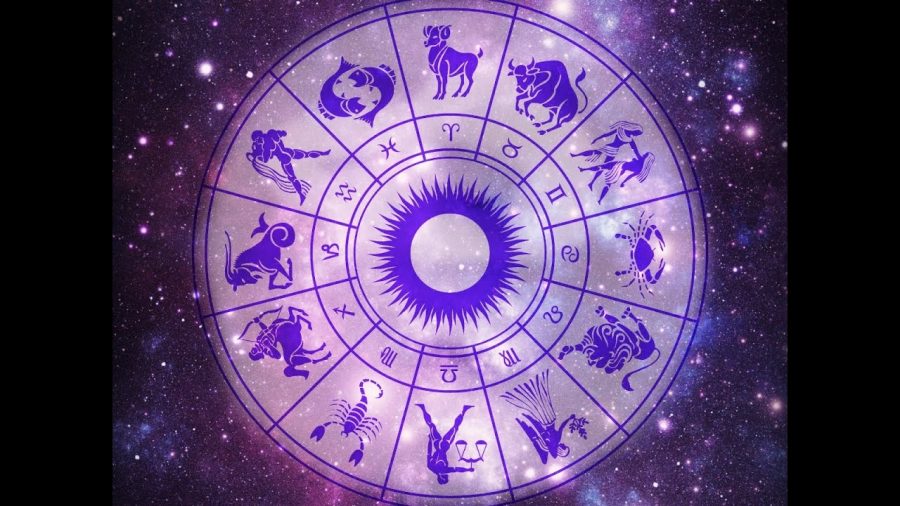Why Horoscopes and Astrology are Unreliable
March 8, 2022
I was born on August 7th, 2004, a Leo. You guys may need to check out ZodiacHacks101: Surviving the Negative Traits of a Leo because of how, “Jealous, egoistic, self-centered, or possessive” I am. These assumptions made due to astrology seem completely illogical to me, so today I will be persuading you that astrology and horoscopes are unreliable. Astrology is dividing the sky into 12 different sections, which makes up our 12 Zodiac Signs. My three main points will be first, explaining how astrology is a pseudoscience, then, psychology terms to debunk astrology, and lastly, astrology is intended as entertainment.
Firstly, Astrology is a pseudoscience, so because it’s unscientific, it’s unreliable. So, what IS a pseudoscience? Stanford University defines it as “A pretended … science; a collection of related beliefs about the world mistakenly regarded as being based on scientific method”. Astrology, by some, has been mistakenly regarded as a science, due to its origins in celestial bodies. However, there are many things about astrology that qualify it as a pseudoscience. First, Astrology cannot be falsified. Horoscopes, when unfulfilled, do not falsify their original prediction. They’re too vague to be, in totality, wrong, and they’re also based on personal judgement on whether the horoscope was fulfilled or not. There are numerous studies on astrology, and they almost all have the same result. One study in particular from Indiana University is when six professional astrologers were given 23 birth charts and had to match them to 23 people. The astrologers were provided with photos and answers to a questionnaire of these people. The results are shocking: the astrologers made from zero to three correct matches, and the average was only one. The maximum was THREE, out of 23, which is only 13% correct. The researcher who did this study concluded that “Astrologers did no better than chance or than a non-astrologer control subject at matching the birth charts to the data”. The Indiana Federation of Astrologers, who had remained confident in the predictive powers of astrology, responded to this study by saying “astrology may not always give quantifiable results but it works nonetheless.” This qualifies astrology as a pseudoscience because astrology as a whole, refuses to deal with the large body of critical scientific studies that go against astrology. In other words, they are refusing to “face the music”.
My second point is that the science of psychology can easily explain why some may find horoscopes and astrology reliable, which proves how astrology is the mind tricking people, not science. First, we have the Barnum effect, which, as defined by Britannica, is a cognitive bias that occurs when individuals believe that descriptions apply specifically to them. However, the description is filled with general information that can apply to, virtually, everyone. I performed my own little experiment on my classmates in College Presentational Speaking to prove that the Barnum effect actually works. In my survey, I provided a statement that was a test that Dr. Forer did, all the way back in 1948, proving the Barnum effect. I asked, on a scale of 0, or strongly disagree, to 100, strongly agree, how well the statement aligned with them. The average score was 70, with 5 classmates saying 100. Next, we have the confirmation bias, which is defined by Britannica as “The tendency to process information by looking for, or interpreting, information that is consistent with one’s existing beliefs”. In the case of astrology, this applies because if someone says that they’re a certain zodiac sign, then that is a hypothesis that the brain wants to find evidence to test. The brain will then examine that person’s personality traits and link those traits to that of their zodiac sign.
My final point is that astrology is intended as entertainment. TikTok is a relatively new social media platform and filters content that is made specifically for you through their “For You” page. This filtration creates an echo chamber, which is defined by GCF Global as when a person only encounters information or opinions that reflect and reinforce their own. Echo chambers are dangerous and can spread misinformation and distort a person’s perspective. This ties in with the confirmation bias since the information found on TikTok usually reinforces your existing beliefs. There are many young kids on TikTok, according to Statista, 32.5% of users are between the ages of 10 to 19, which is a very impressionable age bracket. A lot of the assumptions made based on horoscopes on TikTok are sweeping generalizations, and if you thought horoscopes were randomly made, then wait until you see TikTok astrology posts. TikTok isn’t the only social media platform that has many content creators creating content for astrology. Other examples include Instagram and Twitter. Seeing astrology posts that do not even have astrological roots can be harmful since it’s putting people with the same birthday into one group, and having people form prejudice against them. Many people agree that horoscopes are just for fun, and are not useful in guiding everyday life. A psychology major at Bucknell University who wrote an honors thesis on this topic, writes “Astrological signs and horoscopes are fun additions to life that serve an entertaining purpose…nothing more”. A university conducted a survey, which included diverse groups of students, from many majors: 54% said they read their horoscopes for fun, and 84% said horoscopes “probably” or ”definitely” do not predict trends or events in daily life. These percentages have a margin of error of plus or minus 5.3%. A junior from Iowa State, says “I think I’m a good person, and I don’t need a horoscope to tell me that.”
To conclude, I understand why many turn to astrology during these uncertain times. People may just want a sense of control in their stressful, everyday life, even if this is just an illusion of control. Unsurprisingly, during quarantine, more people read their horoscopes than compared to previous years. I’ll admit, even I’ve checked my horoscopes once or twice. I get it, it’s fun! I just hope that they do not dictate your daily choices or thoughts. I hope that by the end of this, you at least take your horoscopes with a grain of salt and consider everything that I have told you today. A good alternative to reading your horoscope is doing self-reflection. You can ask yourself questions, think about your emotions, create goals for yourself, and more. You all are more than your zodiac signs – don’t let them define you.


